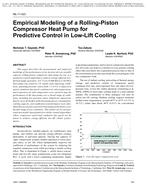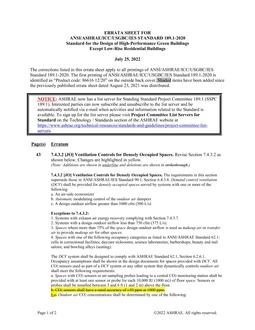This paper documents a procedure that can be used to determine the optimum foundation insulation levels for new, low-rise residential buildings. This procedure has been used to develop the recommended foundation insulation levels for ASHRAE Standard 90.2P, “Energy Efficient Design of New, Low-Rise Residential Buildings.” Basement, crawl space and slab-on-grade constructions are addressed, as well as floors above unheated spaces. The assumptions on which this study is based, such as the economic parameters and the energy load calculation model are discussed, and optimum foundation insulation levels are included for most locations in the United States.
One of the major findings of this analysis is that at least some insulation is cost-effective for all the foundation types in most climates. This is not consistent with predominate building construction practices. Foundation insulation recommendations included in previous ASHRAE standards for new residential construction were not based on the same criteria as the recommendations for the above-grade envelope components. The systematic procedure described in this paper can be used to determine foundation insulation levels that are consistent with above-grade conservation measures on an economic basis.
Units: Dual
Citation: Symposium, ASHRAE Transactions, 1987, vol. 93, pt. 1, New York, NY
Product Details
- Published:
- 1987
- Number of Pages:
- 30
- File Size:
- 1 file , 2.2 MB
- Product Code(s):
- D-NY-87-06-2


